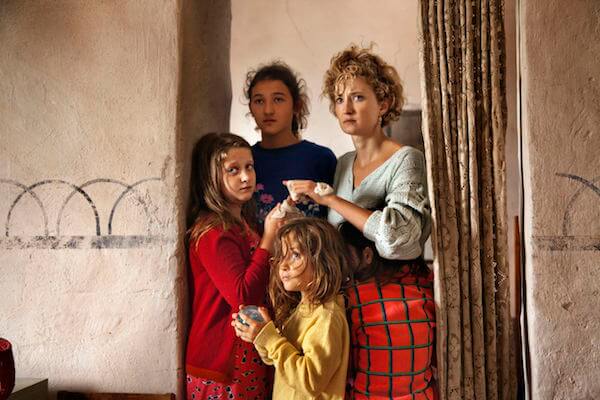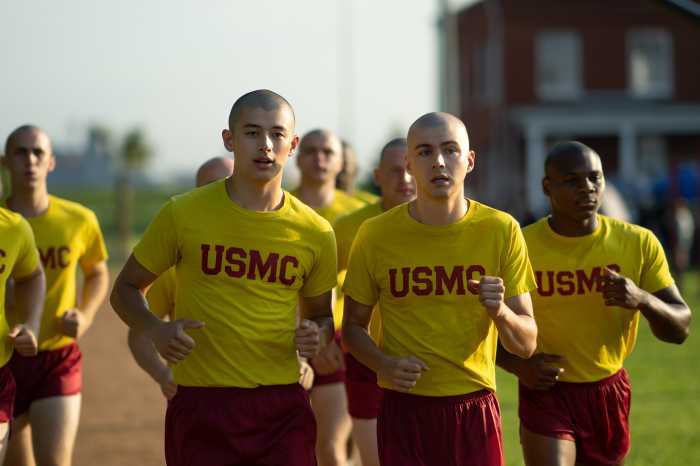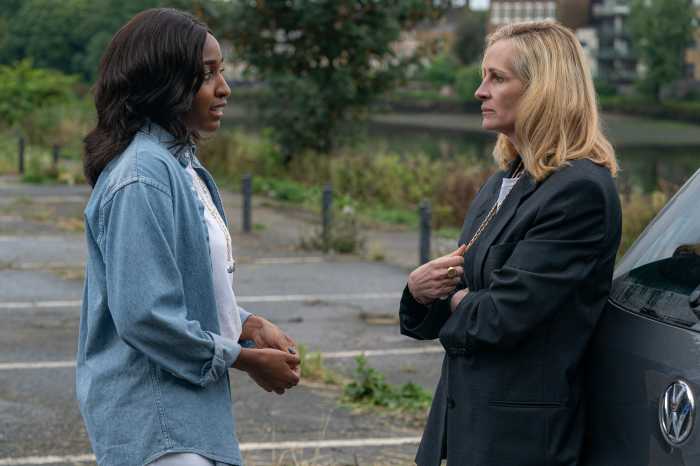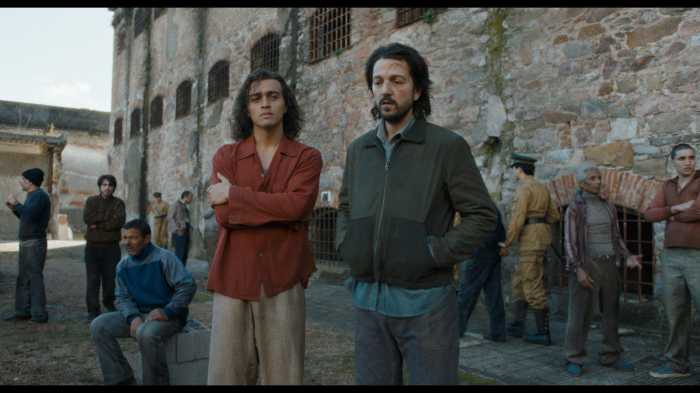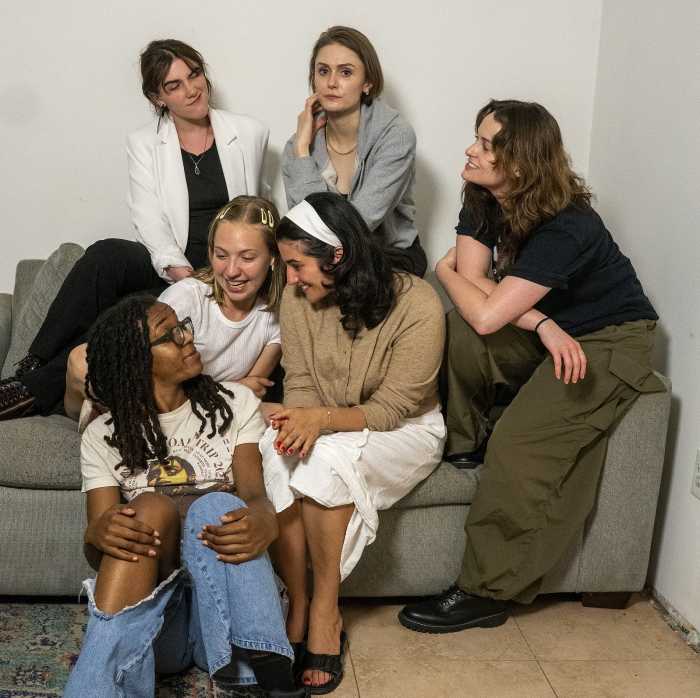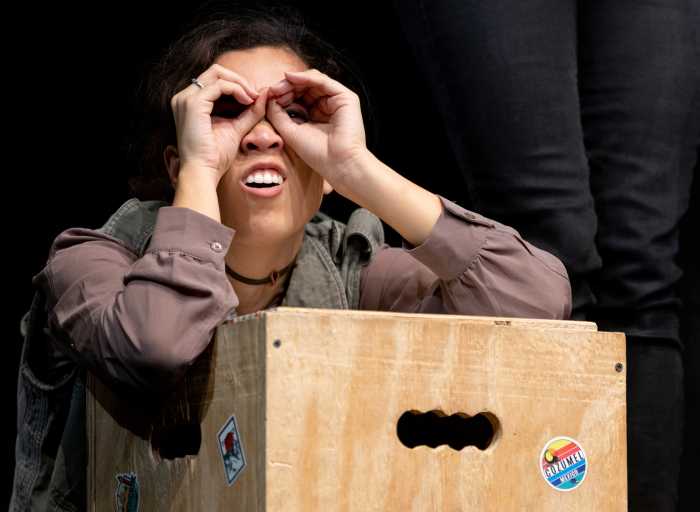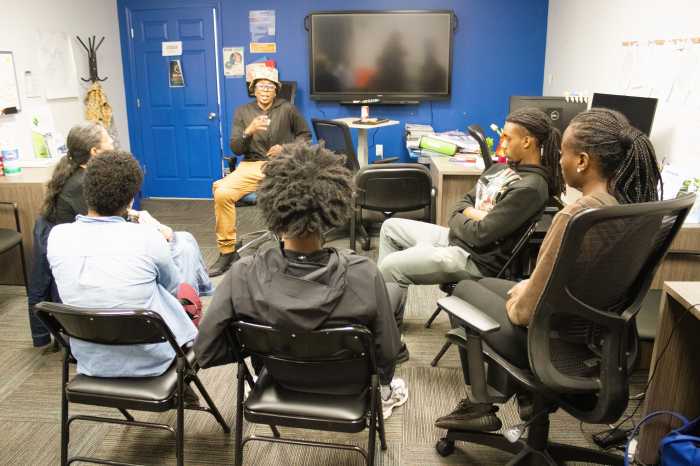Italian director Alice Rohrwacher’s “The Wonders” isn’t a documentary, but it has an immediacy and flux more common to non-fiction films than narrative ones. The actors who play the family at its center aren’t related, yet they’re completely convincing together. The fact that the two youngest daughters are so small that they may be very difficult to direct — for the most part, they seem to be running around, yelling, and having a good time in front of the camera — makes Rohrwacher’s accomplishment all the more impressive. She brings up her themes — such as tradition vs. modernity — subtly. Reality TV represents the latter here, but “The Wonders” doesn’t demonize it. It even manages to see what’s appealing about it and presents a TV star played by Monica Bellucci as a vulnerable person under her glamour.
A family of beekeepers lives in a ramshackle house in the Tuscan countryside. Their house is too small for the six of them, as one can see from an early scene in which a girl is interrupted while using the toilet. The oldest daughter, Gelsomina (Maria Alexandra Lungu), has passed puberty and is on her way to becoming a young woman. While she’s not yet sexually active, her libido is stirred by the arrival of a taciturn teenage boy who helps out at the farm. Simultaneously, a TV show films at a nearby lake and starts a competition among traditional farms to showcase themselves on the show. The irony that such a show is the antithesis of what the local farms represent is not lost on the characters, particularly father Wolfgang (Sam Louwyck), but most of them are enthusiastic about it anyway.
Rohrwacher alternates between busy shots in which the frame is filled with people and action and quieter images focusing on one person. In one memorable moment, the camera seems to be held about six inches from a camel’s head. (The camel squeals irritably, but it never spits or gets aggressive.) She’s attentive to the passing of the seasons and changes in weather. The film begins in a colorful summer and ends in a darker, drizzly climate. The cinematography captures all this beautifully.
Alice Rohrwacher casts a female gaze on Italian lives off the beaten track
“The Wonders” poses some tantalizing questions about how one can live off the grid. Wolfgang’s family is a group of dropouts from corporate culture, but as Rohrwacher notes in an interview in the press kit, they work far too hard to be hippies. Their political ideology is implicit. They work for themselves, without a boss overseeing them. At several points in the film, disaster seems to strike: the town imposes new regulations on their beekeeping business, and one of the girls injures her hand in a machine while Wolfgang is away. “The Wonders” is a film with a high tolerance for its characters’ penchant for failure. To lift Leonard Cohen’s phrase, they’re beautiful losers.
As far as I can tell, Italian cinema has been on a downward slide the past few decades. “The Wonders” may have escaped this fate because it is an intensely local film that reaches out to the rest of the world: dialogue is spoken in several languages. It speaks about isolation and living in the sticks. The family does own a TV, but it’s notable how different they seem from American children and teenagers: they’re not addicted to technology. Cell phones are missing from their lives, as well as the Internet. When two of the girls listen to hip-hop (in Italian) on the radio, it seems to emanate from an entirely different world than the one they live in.
Rohrwacher’s characters work in parallel to her own modest enterprise. She even cast her sister as the family matriarch. They don’t care much about obeying the rules, even at the cost of breaking the law. Rohrwacher says, “Often good movies cannot comply with all narrative and production rules. Sure, there is the risk that audiences, a bit like the sanitation department, will shut you down.”
One of the rules broken by “The Wonders” is the unspoken one that cinema is a boys’ club. Rohrwacher managed to get into the very exclusive Cannes competition section last year and win its second-highest prize, the Grand Prix. “The Wonders” speaks about female coming-of-age, among other subjects. In and of itself, that’s not particularly groundbreaking, but it does so without sexualizing its heroine. Rohrwacher sees even the domineering Wolfgang through a female gaze. “The Wonders” manages to examine its entire cast of characters, male and female, in a loving but clear and pitiless light.
THE WONDERS | Directed by Alice Rohrwacher | Oscilloscope Laboratories | In Italian, French, and German with English subtitles | Opens Oct. 30 | Lincoln Plaza Cinema, 1886 Broadway at E. 63rd St. | lincolnplazacinema.com

